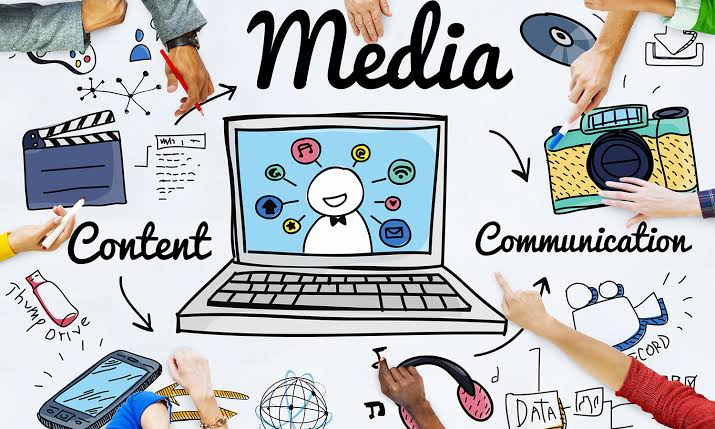Post by cole on Sept 19, 2022 22:10:30 GMT
Britannica defines journalism as "the collection, preparation and distribution of news, related commentary and feature materials through such print and electronic media as newspapers, magazines, books, blogs, webcasts, podcasts, social networking and social media sites; and e-mail as well as through radio, motion pictures, and television." The word journalism was originally applied to the reportage of current events in printed form, specifically newspapers, but with the advent of radio, television and the Internet in the 20th Century, the use of the term broadened to include all printed and electronic communication dealing with current affairs.
Journalism in the 20th Century was marked by a growing sense of professionalism. There were four important factors in this trend: (1) The increasing organization of working journalists, (2) specialized education for journalism, (3) a growing literature dealing with the history, problems and techniques of mass communication; and (4) an increasing sense of social responsibility on the part of journalists.
The 20th Century also saw a renewal of the strictures and limitations imposed upon the press by governments. In countries with communist governments, the press was owned by the state; and journalists and editors were government employees. Under such a system, the prime function of the press to report the news was combined with the duty to uphold and support the national ideology and the declared goals of the state. This led to a situation in which the positive achievements of communist states were stressed by the media, while their failings were underreported or ignored. This rigorous censorship pervaded journalism in communist countries.
In noncommunist developing countries, the press enjoyed varying degrees of freedom, ranging from the discreet and occasional use of self-censorship on matters embarrassing to the home government to a strict and omnipresent censorship akin to that of communist countries. The press enjoyed the maximum amount of freedom in most English-speaking countries and in the countries of western Europe.
Whereas traditional journalism originated during a time when information was scarce and thus highly in demand, 21st-century journalism faced an information-saturated market in which news had been, to some degree, devalued by its overabundance. Advances such as satellite and digital technology and the Internet made information more plentiful and accessible; and thereby stiffened journalistic competition. To meet increasing consumer demand for up-to-the-minute and highly detailed reporting, media outlets developed alternative channels of dissemination, such as online distribution, electronic mailings and direct interaction with the public via forums, blogs, user-generated content; and social media sites such as Facebook and Twitter.
In the second decade of the 21st Century, social media platforms in particular facilitated the spread of politically oriented 'fake news', a kind of disinformation produced by for-profit Web sites posing as legitimate news organizations and designed to attract (and mislead) certain readers by exploiting entrenched partisan biases. During the campaign for the U.S. presidential election of 2016 and after his election as president in that year, Donald J. Trump regularly used the term 'fake news' to disparage news reports, including by established and reputable media organizations, that contained negative information about him.

Journalism in the 20th Century was marked by a growing sense of professionalism. There were four important factors in this trend: (1) The increasing organization of working journalists, (2) specialized education for journalism, (3) a growing literature dealing with the history, problems and techniques of mass communication; and (4) an increasing sense of social responsibility on the part of journalists.
The 20th Century also saw a renewal of the strictures and limitations imposed upon the press by governments. In countries with communist governments, the press was owned by the state; and journalists and editors were government employees. Under such a system, the prime function of the press to report the news was combined with the duty to uphold and support the national ideology and the declared goals of the state. This led to a situation in which the positive achievements of communist states were stressed by the media, while their failings were underreported or ignored. This rigorous censorship pervaded journalism in communist countries.
In noncommunist developing countries, the press enjoyed varying degrees of freedom, ranging from the discreet and occasional use of self-censorship on matters embarrassing to the home government to a strict and omnipresent censorship akin to that of communist countries. The press enjoyed the maximum amount of freedom in most English-speaking countries and in the countries of western Europe.
Whereas traditional journalism originated during a time when information was scarce and thus highly in demand, 21st-century journalism faced an information-saturated market in which news had been, to some degree, devalued by its overabundance. Advances such as satellite and digital technology and the Internet made information more plentiful and accessible; and thereby stiffened journalistic competition. To meet increasing consumer demand for up-to-the-minute and highly detailed reporting, media outlets developed alternative channels of dissemination, such as online distribution, electronic mailings and direct interaction with the public via forums, blogs, user-generated content; and social media sites such as Facebook and Twitter.
In the second decade of the 21st Century, social media platforms in particular facilitated the spread of politically oriented 'fake news', a kind of disinformation produced by for-profit Web sites posing as legitimate news organizations and designed to attract (and mislead) certain readers by exploiting entrenched partisan biases. During the campaign for the U.S. presidential election of 2016 and after his election as president in that year, Donald J. Trump regularly used the term 'fake news' to disparage news reports, including by established and reputable media organizations, that contained negative information about him.




